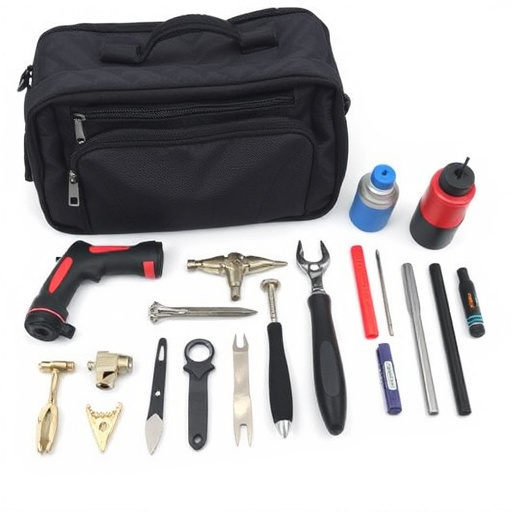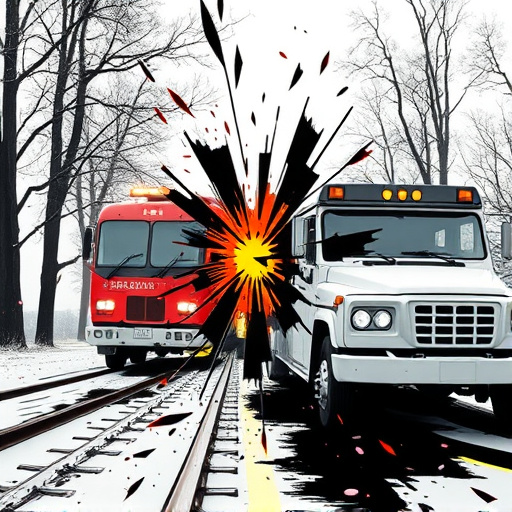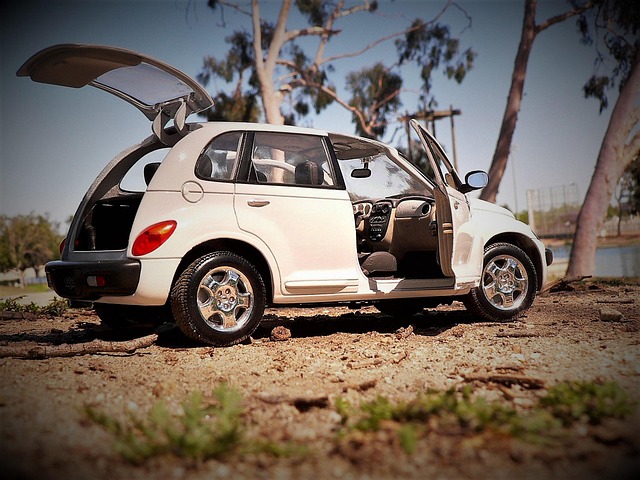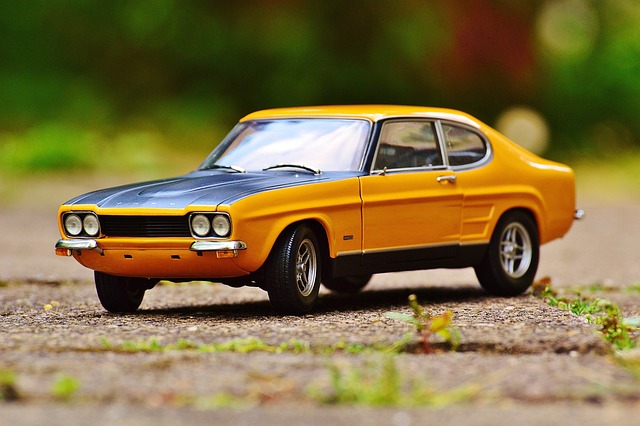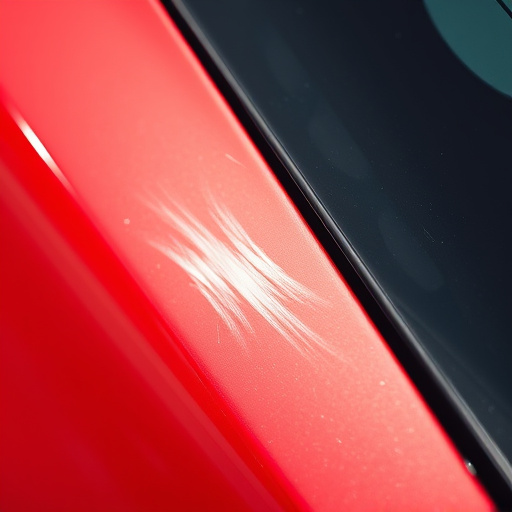Using recycled parts for collision repair offers cost savings and significant environmental benefits by diverting materials from landfills, reducing energy consumption, and lowering greenhouse gas emissions. This trend aligns with consumer preferences for eco-friendly practices and streamlines recycling. Quality assurance is crucial, with rigorous inspections and testing to ensure structural integrity, corrosion resistance, and compatibility with modern vehicles during body restoration or frame straightening. Trained technicians must employ proper handling and installation techniques to prevent secondary damage.
In today’s eco-conscious world, recycled parts are transforming the collision repair industry. This article explores why these repurposed components are an ideal solution for automotive repairs. We delve into the environmental advantages, highlighting how they reduce waste and minimize ecological impact. Additionally, we examine the cost savings for repair shops and ensure quality and safety remain paramount. By embracing recycled parts, collision centers can contribute to a more sustainable future while delivering high-quality auto restoration services.
- Environmental Benefits of Recycled Parts
- Cost Efficiency for Collision Repair Shops
- Quality Assurance and Safety Considerations
Environmental Benefits of Recycled Parts
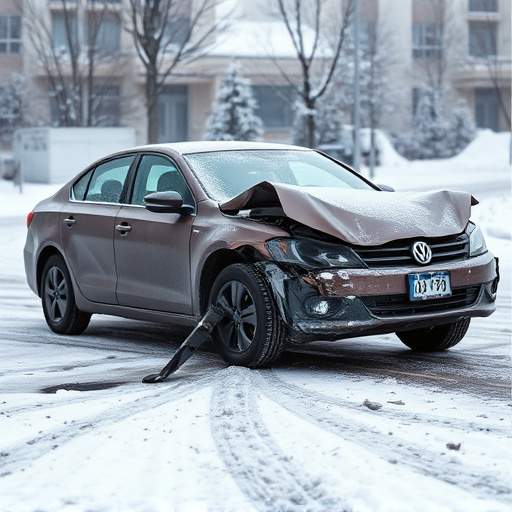
Using recycled parts for collision repair isn’t just a cost-effective solution; it also offers significant environmental benefits. These parts, sourced from salvaged vehicles, divert valuable materials from landfills and reduce the demand for new metal production, which is an energy-intensive process that contributes to greenhouse gas emissions. By incorporating recycled components into their work, auto body shops can help minimize their carbon footprint and contribute to a circular economy where resources are reused and repurposed.
Moreover, the use of recycled parts in vehicle collision repair streamlines the recycling process itself. Shops can recycle not only metal but also other materials like plastic and glass that would otherwise end up in trash. This dual benefit—reducing waste at the source and through subsequent repairs—makes recycled parts a sustainable choice for fleet repair services and car body restoration projects, aligning with growing consumer demand for eco-friendly practices.
Cost Efficiency for Collision Repair Shops
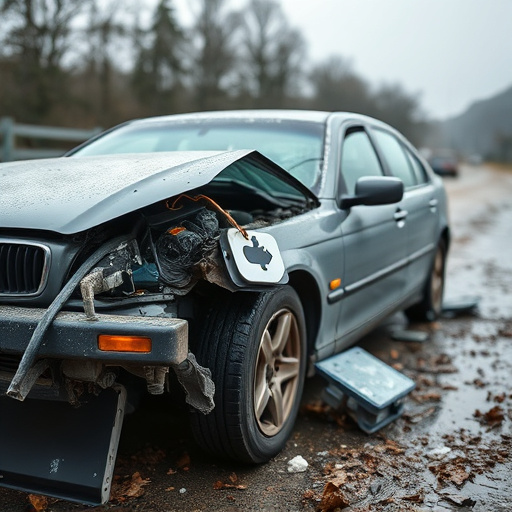
Collision repair shops are always on the lookout for cost-effective solutions that don’t compromise quality. Recycled parts have emerged as a game-changer in this regard, offering significant savings without sacrificing durability and reliability. By opting for recycled components, car repair shops can pass these cost benefits on to their customers, making luxury vehicle repair more accessible without breaking the bank.
This trend is particularly advantageous for budget-conscious individuals and businesses operating car repair shops. With a focus on sustainability, many facilities are now prioritizing eco-friendly practices, and using recycled parts aligns perfectly with this mission. Moreover, the availability of high-quality recycled parts ensures that vehicle collision repair processes can be efficient while keeping expenses under control.
Quality Assurance and Safety Considerations
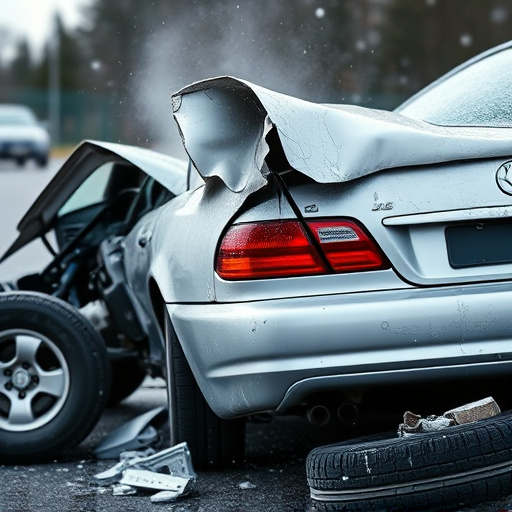
In the realm of automotive collision repair, quality assurance and safety are paramount. When using recycled parts for car body restoration or frame straightening, meticulous inspection becomes an integral part of the process. Every recycled component must undergo rigorous testing to ensure it meets the highest standards of performance and durability. This includes evaluating their structural integrity, corrosion resistance, and compatibility with modern vehicles.
Safety considerations extend beyond the quality of the parts themselves. Proper handling and installation techniques are crucial to prevent secondary damage or accidents during the repair process. Trained technicians play a vital role in ensuring that recycled parts are seamlessly integrated into the vehicle without compromising overall safety. This meticulous approach not only guarantees superior car body restoration but also enhances the reliability and longevity of the repaired vehicle, making recycled parts an eco-friendly and practical choice for automotive collision repair needs.
Recycled parts offer a compelling solution for collision repair needs, combining environmental benefits with cost efficiency. As the demand for sustainable practices grows, adopting recycled components becomes not only an eco-friendly choice but also a strategic decision for collision repair shops. With strict quality assurance measures in place, these parts ensure safety and performance, making them a reliable option for restoring vehicles to their pre-accident condition. Embracing recycled parts in collision repair is a step towards a greener future while meeting the economic demands of the industry.
